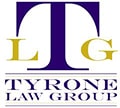Estate planning is managing, preserving, and distributing your moveable and immovable assets (financial and non-financial) to your loved ones after your death.
A comprehensive estate plan guarantees that your transfer goes well and your family’s needs are met.
Undertaking estate planning guarantees that your family is safeguarded and can maintain the same standard of living as before your death (the primary income earner.)
Estate planning is also necessary if a person becomes disabled due to a lifestyle condition such as Parkinson’s disease, dementia, neurological problems, and so on, which might impair normal functioning.
To properly implement an estate plan, you need various tools. You can use one or more of the tools depending on your objectives.
To help you out, here are some of the tools recommended by an estate planning lawyer that you can use to your advantage:
Comprehensive insurance
Getting comprehensive life insurance is one of the simplest ways to ensure your family members are well-protected. In the event that the family’s major source of income is lost due to your sudden death, an insurance policy can cover their day-to-day needs as well as other financial goals.
If you are a woman, you can use the Married Women’s Property Act (MWP) can be used efficiently to protect your assets as a married woman. The act protects your assets from creditors and other relatives.
Insurance can also assist in equalizing inheritances if you plan to leave different types of assets to different heirs.
For instance, if you intend to leave your business to one child and a significant piece of real estate to another, a life insurance policy provides funds to ensure that each child receives an equal share of the entire value of your estate.
Estate taxes can be a significant problem depending on your jurisdiction and the size of your estate. An irrevocable life insurance trust (ILIT)-owned life insurance policy can assist in offsetting estate taxes by giving tax-free proceeds to your beneficiaries.
For the best outcome in your implementation, work with financial advisers, estate planning attorneys, and insurance specialists to ensure that your coverage corresponds with your overall estate planning goals and needs.
Remember that estate planning and tax regulations might change, so stay informed, evaluate your plan regularly, and always make any necessary changes.
Nomination
Nomination is the act of naming individuals or institutions as beneficiaries or decision-makers for specific assets or duties upon your death or incapacity.
You ensure your intentions are carried out successfully when you have a nominee.
This calls for you to check to see if your investments—real estate and financial assets—have a nominee. You should then have one for each of the assets.
The nominee you go with should be aware that they are a nominee. In most cases, the nominee becomes aware only after the death. This is wrong.
Bank savings accounts, current accounts, fixed deposits, bank lockers, post office schemes, bonds, demat holdings, stocks, mutual funds, physical shares (if held), residential or commercial plots, flats, gold, silver, paintings, artifacts, and any other assets should have a nominee.
You should check and update your nominations regularly, mainly when major life events occur, such as marriage, divorce, the birth of children, or the death of nominated individuals.
This is because nominations that are properly executed and up to date can help guarantee that your estate plan reflects your current objectives and that your assets are allocated according to your choices.
You should regularly consult an estate planning attorney or financial advisor to verify that your nominations are consistent with your overall estate planning objectives.
Will
You can use a will to specify how your assets should be dispersed after your death. Because it is a legal document, it plays an important part in estate planning.
A will demonstrates your desire regarding who you want the assets transferred to following your death.
With a will, your legal heirs can claim the assets, which may take years.
You should note that in the event you die intestate or without making a will, your legal heirs may need to get a succession certificate under succession laws to claim your assets.
When you are writing a will, there are several crucial things you should remember. One of the things to remember is that a will must be written down.
It can even be handwritten. It does not have to be on stamp paper.
Two people should witness it. The witnesses should ideally be younger than the testator.
Will registration is optional but recommended if there is immovable property involved.
You should always consult an expert estate planning attorney Largo to verify that your will complies with state laws and addresses all of your wishes.
After drafting your will, keep it in a safe and accessible location and inform trustworthy individuals of its location.
Review and amend your will regularly to reflect changes in your life, finances, and family circumstances.
To construct a thorough estate plan, consider using other estate planning instruments, such as trusts and gift deeds, in addition to your will.
You use a gift deed to transfer assets to family members and relations. While it’s valuable, you should note that it’s only used for transfers made during your lifetime. It can’t be used in your demise.
You use a trust to protect your assets. It is a legal framework distinct from you; you can create one for almost everyone. You can create one for your youngsters, the physically impaired, etc.
You can even create one for philanthropic causes. A trust comes in handy in avoiding asset conflicts.
Parting shot
As you can see, there are many tools you can use in estate planning. There is no right or wrong tool to do it. Your choice is pegged on your needs and preferences. As a rule of thumb, work with an experienced attorney to guide you on the best route.
